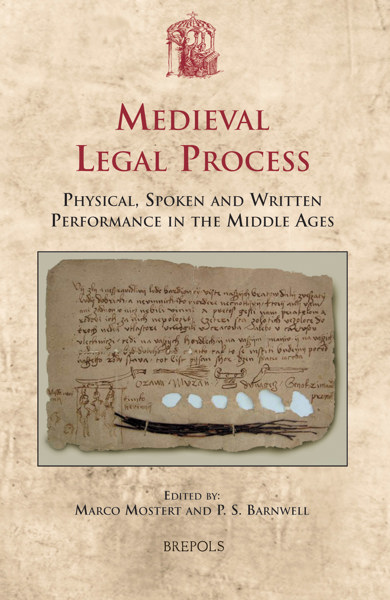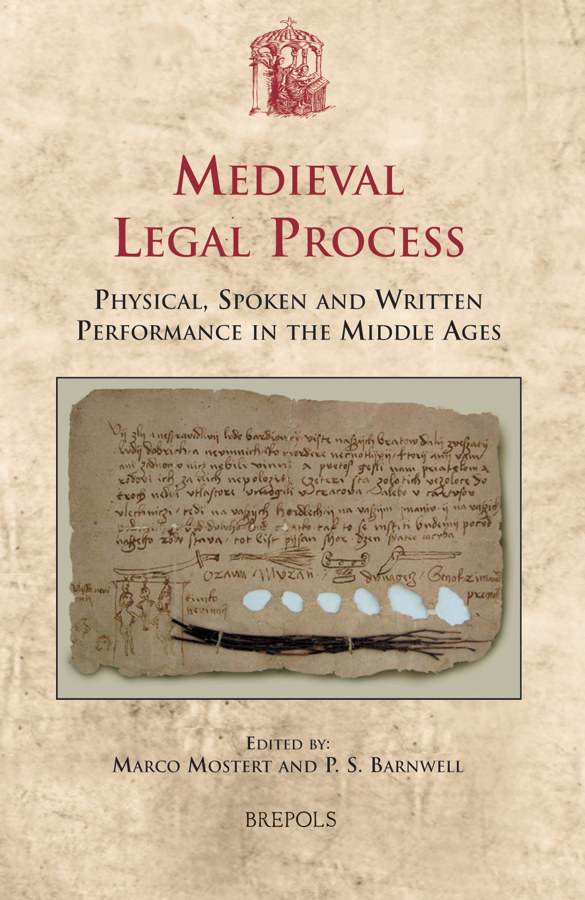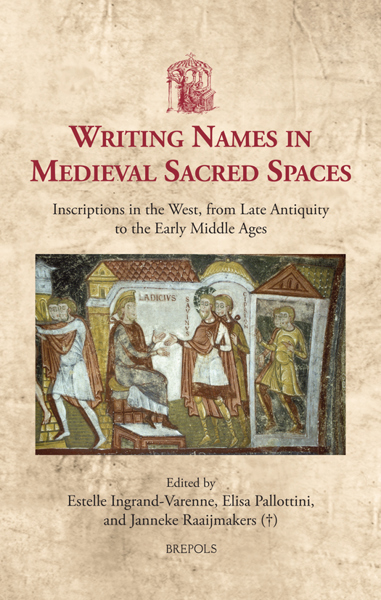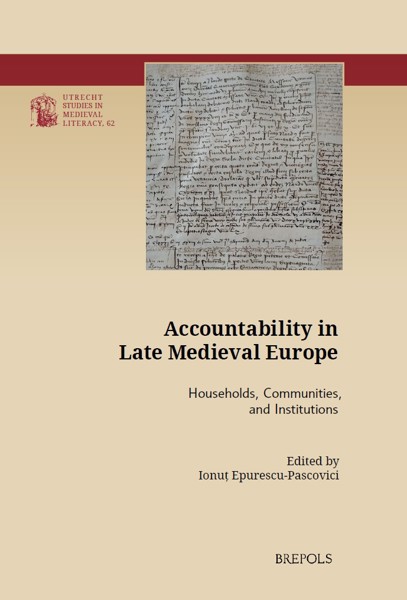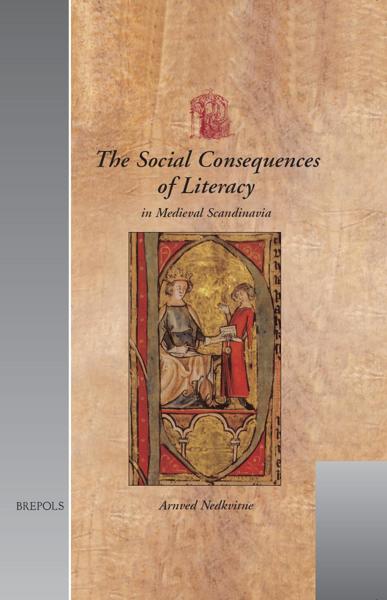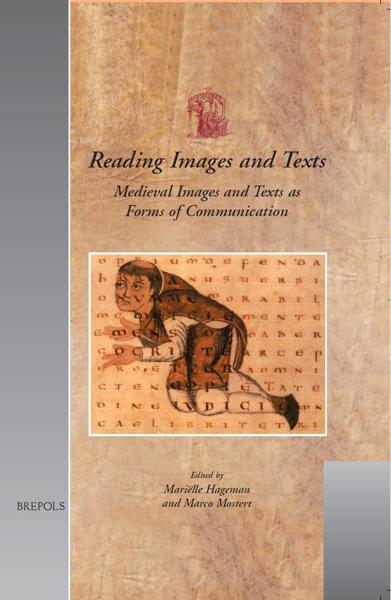
Medieval Legal Process
Physical, Spoken and Written Performance in the Middle Ages
Marco Mostert, Paul S. Barnwell (eds)
- Pages: ix + 299 p.
- Size:156 x 234 mm
- Illustrations:5 b/w, 5 tables b/w.
- Language(s):English
- Publication Year:2011
- € 85,00 EXCL. VAT RETAIL PRICE
- ISBN: 978-2-503-54174-7
- Hardback
- Available
- € 85,00 EXCL. VAT RETAIL PRICE
- ISBN: 978-2-503-54207-2
- E-book
- Available
This volume discusses fifteen cases of medieval legal processes, ranging from the early Middle Ages to the eighteenth century, and from England to Galician Rus’.
"Im Überblick überzeugt der Band (...) vor allem durch seinen geographisch weiten Rahmen (...)" (Klaus Oschema, in: Francia-Recensio, 2012/3)
"Der vorgelegte Sammelband bindet aus recht Blickwinkeln interessante Studien zum Verhältnis von Schriftlichkeit, Mündlichkeit und performativen Akten im ma. Rechtsleben zusammen; (...)" (Andrea Stieldorf, in: Deutsches Archiv für Erforschung des Mittelaters, Bd. 69.1, p. 321-322)
"It is a shame to be unable to treat each article in any depth, for every one introduces the reader to some fascinating practice, calls attention to some overlooked source, or sheds new light on well-known sources." (Geoff Koziol, in: The Medieval Review, 12.09.02)
In medieval legal transactions the use of the written word was only one of many ways of conducting business. Important roles were played by the spoken word and by the ‘action’ of ritual. The relationship between ‘rituals’ and literacy has been the focus of much recent research. Medieval societies which made extensive use of written instruments in legal transactions have been shown to employ rituals as well. This has led to investigation of the respective functions of written instruments and legal rituals. What is the nature of legal rituals? If they included oral verbalization, how did the spoken words relate to those of the written instruments that played a role in the same legal transactions? Usually, we only have the written documents to answer these questions, and they are often silent about the rituals and oral elements of the transactions they document. Furthermore, the importance attached to written instruments and rituals may not have been the same at all levels of a society, differing, for example, between princely and local courts. The contributors to this volume discuss fifteen cases, ranging from the early Middle Ages to the eighteenth century, and from England to Galician Rus’.
Preface
Abbreviations
Introduction - MARCO MOSTERT
Action, Speech and Writing in Early Frankish Legal Proceedings - PAUL S. BARNWELL
Writing Charters as a Public Activity: The Example of the Carolingian Charters of St. Gall - BERNHARD ZELLER
Charters as Texts and as Objects in Judicial Actions: The Example of the Private Carolingian Charters of St. Gall - KARL J. HEIDECKER
Between Legal Action and Performance: The firmatio of Charters in the Early Middle Ages - GEORGES DECLERCQ
The Privilege in the Public Interaction of the Exercise of Power: Forms of Symbolic Communication Beyond the Text - HAGEN KELLER
Rhetoric and Ritual in Late Anglo-Saxon Charters - CHARLES INSLEY
Assemblies and the Writing of Administrative Documents in the Central Medieval Kingdom of the Scots - MATTHEW HAMMOND
Oral Fragments in the Earliest Old Swedish Laws? - STEFAN BRINK
Circumstantial Evidence: Danish Charters of the Thirteenth Century - MICHAEL H. GELTING
Writing and Political Communication in Italian City Communes - CHRISTOPH DARTMANN
Founding a Monastery over Dinner: The Case of Henryków in Silesia (c. 1222-1228) - ANNA ADAMSKA
Non-Verbal Acts in Legal Transactions in Medieval Hungary and its Environs - JÁNOS M. BAK
“Super tali re dubium periculosum est iuramentum”: Oath-Taking and Dispute Procedures in Fifteenth-Century Galicia - JURIJ ZAZULIAK
Villains, Merchants and the Written Word: A Document of Highland Outlaws from the Polish-Hungarian Border Area from 1493 - STANISLAW A. SROKA
Making Court Decisions Known in Medieval Holland - MARCO MOSTERT
